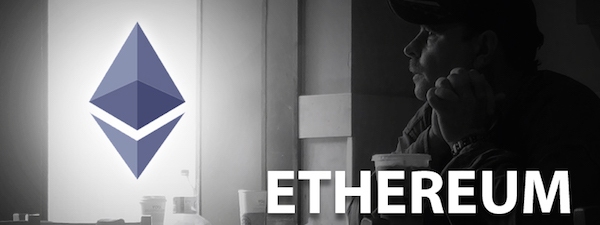Ethereum's Gold Rush is Drawing Bitcoin Miners to Ethereum
- Overview - Table of Contents
- Ether Mining Attracting new Miners
- Proof of Stake For Ethereum
Ethereum’s recent price rise, from less than $1 per ether to more than ten times that witin six months, has created a gold rush centered around it. And among people who want to capitalize on this gold rush are Bitcoin miners, many of whom have now also started to mine Ether.

Bitcoin mining is the process in which miners create new blocks, which are groupings of transactions, that satisfy some specific constraints. Creating such blocks is not easy, and requires huge computing power. The hardware required is costly, as is the electricity needed to run the hardware. Miners make up for this cost by earning a reward in the cryptocurrency they are mining.
With the increase in Ether price, it is becoming more and more attractive to mine Ether too. This is what is attracting leading Bitcoin miners to Ethereum mining. One such miner is Chandler Guo, CEO of Chinese mining company BW.com, who owns up to 10% of world’s bitcoin mining computing power. He recently declared on his facebook page that, “I am a miner of #ethereum.” With this announcement, he also started a crowdfunding campign to fund his new Ethereum mining operation. A lot of other leading miners are now also mining ethereum.
Ether Mining Attracting new Miners
Mining in the Ethereum network is fundamentally the same process, because it is still based on proof of work (PoW) , where the miner has to show that they have solved a complex computation. However, there are some differences too. One major difference is that whereas Bitcoin mining is done using custom designed ASIC chips, ethereum mining is currently ASIC resistant because it uses a PoW algorithm called Ethash that’s said to be ASIC resistant. Another difference is that whereas blocks are created every 10 minutes in Bitcoin network, in Ethereum network new blocks are created every 14 seconds.
There are plans among the developers of Ethereum to shift to a ‘proof of stake’ algorithm after a few months, but for now, computational leaders of Bitcoin mining are shifting to mine Ethereum too.
One such Bitcoin miner is F2Pool, which is a pool of users that mines the maximum number of bitcoins as of mid-2016. F2Pool also operates an Ethereum mining pool for users who want to mine Ether. Another major Bitcoin player, Genesis Mining, has also started to offer cloud computational devices for mining in the Ethereum network. Genesis Mining recently unveilved the largest Ethereum Mine in the world, called ‘Enigma’.
Proof of Stake For Ethereum
Ethereum developers have already outlined a roadmap where they plan to switch to ‘proof of stake’ (PoS) algorithm for Ethereum mining in the near future. They plan to switch to PoS because they have concerns in case a single entity with 51% mining power is able to change the old blocks, rendering obsolete countless contracts and transactions. This is one of the factors why not everyone is interested in Ethereum mining: once the ‘proof of stake’ algorithm rolls in, the current hardware that works on Proof of Work would be mostly rendered obsolete.
For the present, the major factor for new players entering the Ethereum mining space is the price of Ether, and currently its rising price is attracting new players. As of 11th June 2016, the price of Ether is $13.79, whereas it was around $0.95 on 1st January 2016. Such quantum leap in Ether price has lured in huge numbers of users as well as miners, and continues to do so.
